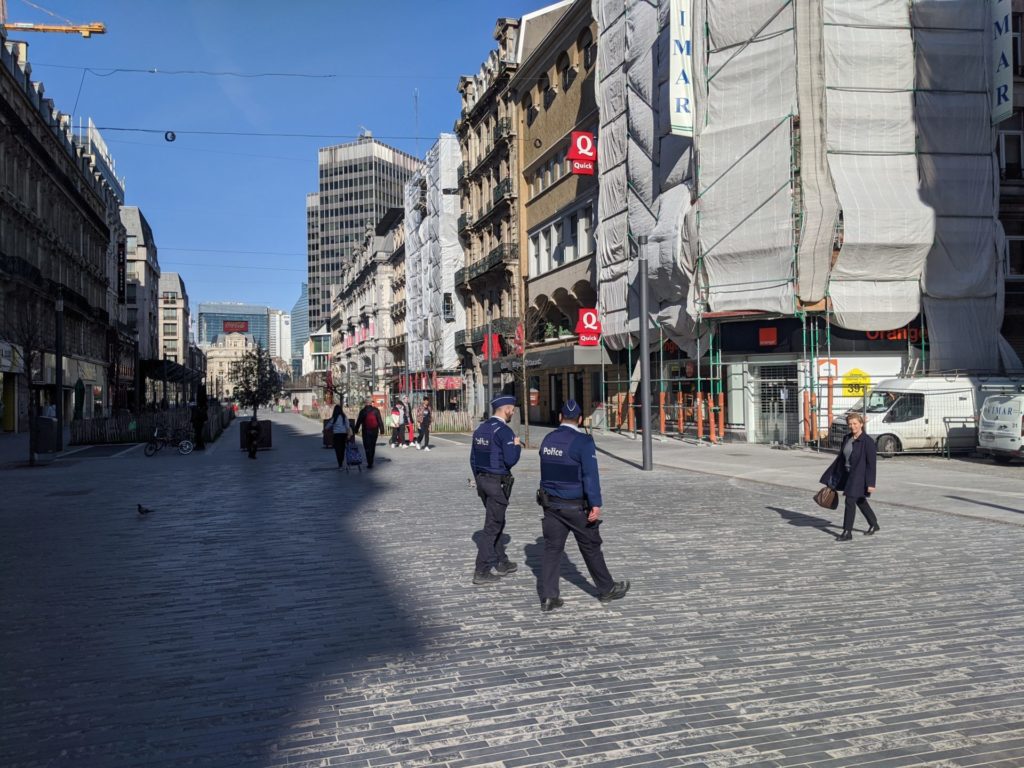The federal government announced that the police would ensure that all measures to contain the further spread of the new coronavirus (Covid-19) were complied with. But how are they doing that?
Physical activity in the open air is allowed, "and even recommended," according to the federal government. Going outside is allowed with family, or friend or acquaintance, provided social distancing is respected, but meeting groups of friends in public is no longer allowed.
"We will certainly talk to people in the street, possibly ask them if they belong to the same family, and check if they are keeping enough distance," said Ilse Van de keere, spokesperson for the Brussels Capital police zone, to De Morgen.
However, the goal is mainly to make people aware of the rules. "We are here to help people," said Van de keere. "We will monitor the measures, but we are still discussing how we are going to do that," she added.
Related News
- How Belgium's shutdown is impacting public transport
- Coronavirus: EU leaders agree to external border shutdown
- Ignoring new measures could lead to a fine or imprisonment
"In the first instance, we will explain why these measures are in place. If we come across a group of people, we will make sure they split up," a spokesperson of the Antwerp police told The Brussels Times, adding that most of the staff is focussed on making sure the measures are being respected at the moment. People violating the crisis measures risk getting a GAS fine (municipal administrative penalty).
Stores and traders who do not comply with the imposed measures, can be prosecuted, and the police will draw up an official report. However, the intention is to only do this for persistent offenders.
The public prosecutors consider the follow-up of the measures to be a priority, said Crown prosecutor Ine Van Wymersch on Wednesday morning on Radio 1. The public prosecutor can issue fines or summon offenders to appear before the correctional court. "We hope it doesn't have to come to that. But if it has to, then it has to," she added.
Maïthé Chini
The Brussels Times

